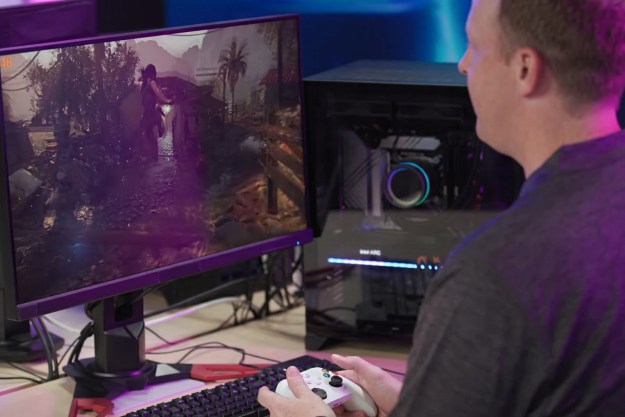Windows 11 is here, but it’s not in its best form. AMD posted a notice today warning of performance drops of up to 15% on AMD processors using Windows 11. AMD says it has an update that’s set to arrive later in October, but the company hasn’t announced the date yet.
Only certain applications are affected, but AMD hasn’t said which ones. Certain applications show up to a 5% reduction in performance, while “games commonly used for esports” can show as much as a 15% downgrade. AMD also said that limited-thread applications that stress a single core “may exhibit reduced performance.”

The problem stems from increased level 3 (L3) cache latency. AMD says that Windows 11 can increase measured and functional latency by three times. As the name implies, this is the lowest cache level, so increased latency here represents increased latency for the entire chip. The L3 cache feeds the L2 cache, and so on.
Naturally, this hang-up applies to applications that rely on the CPU’s memory subsystem. Esports titles like Dota 2 and Counter-Strike: Global Offensive are affected here, as the data coming from your RAM into the CPU is held up by the L3 cache. Outside of games, other programs rely on the memory subsystem heavily, though they sustain a much lower decrease in performance.
The second issue stems from AMD’s “preferred core” for limited threaded applications. AMD processors push the fastest core to the front of the pile in limited threaded applications, helping boost performance by utilizing the fastest core available. On Windows 11, it seems the scheduler will not place tasks on this core, leading to a decrease in performance.
This issue doesn’t apply to all processors, though. AMD says you should only notice a difference in processors with fewer than eight cores with a TDP above 65 watts.
These problems only apply to processors supported by Windows 11 — though it’s possible unsupported CPUs are affected, too. You can find the full list on Microsoft’s website. For consumer desktops, you’re mainly looking at Ryzen 2000, Ryzen 3000, Ryzen 5000, Threadripper 2000, and Threadripper 3000.
We expected issues with Windows 11 at launch, but a 15% decrease in some games is tough to swallow. It seems there are some issues with the Windows 11 scheduler, too. Previously, we heard about Intel’s Thread Director feature and how upcoming Alder Lake processors could take advantage of the scheduler inside
It seems the scheduler may have been tuned for that type of design. AMD and Microsoft are working on an update to fix the issue, but we don’t know when it’s coming yet. AMD says it expects the update this month.
If you just installed Windows 11, you might want to take advantage of the 10-day downgrade period, at least until this issue is resolved.
Editors' Recommendations
- Windows 11 might nag you about AI requirements soon
- The next big Windows 11 update has a new hardware requirement
- Gigabyte just confirmed AMD’s Ryzen 9000 CPUs
- Windows 11 tips and tricks: 8 hidden settings you need to try
- AMD’s next-gen CPUs are much closer than we thought





